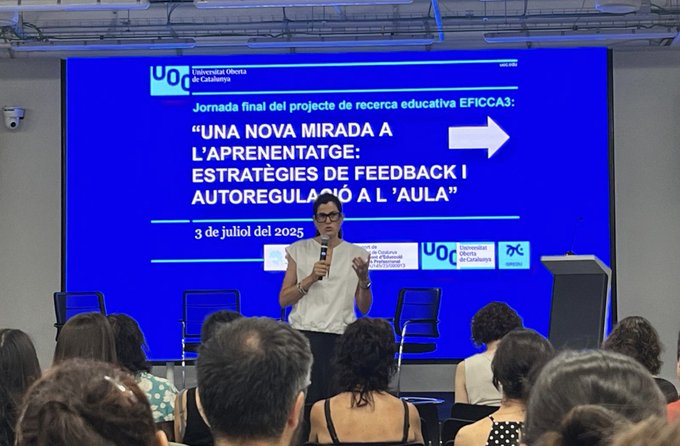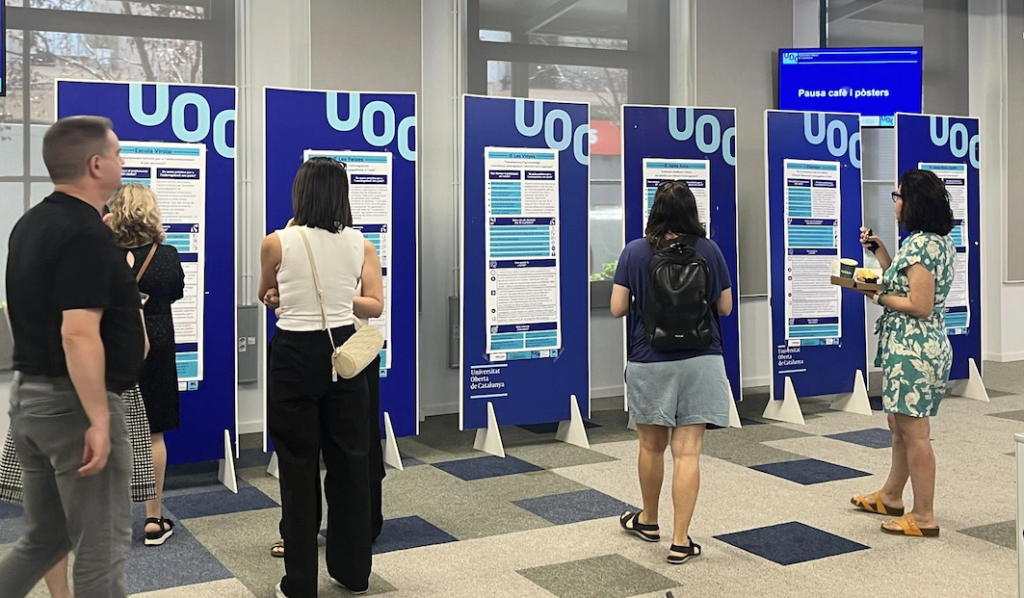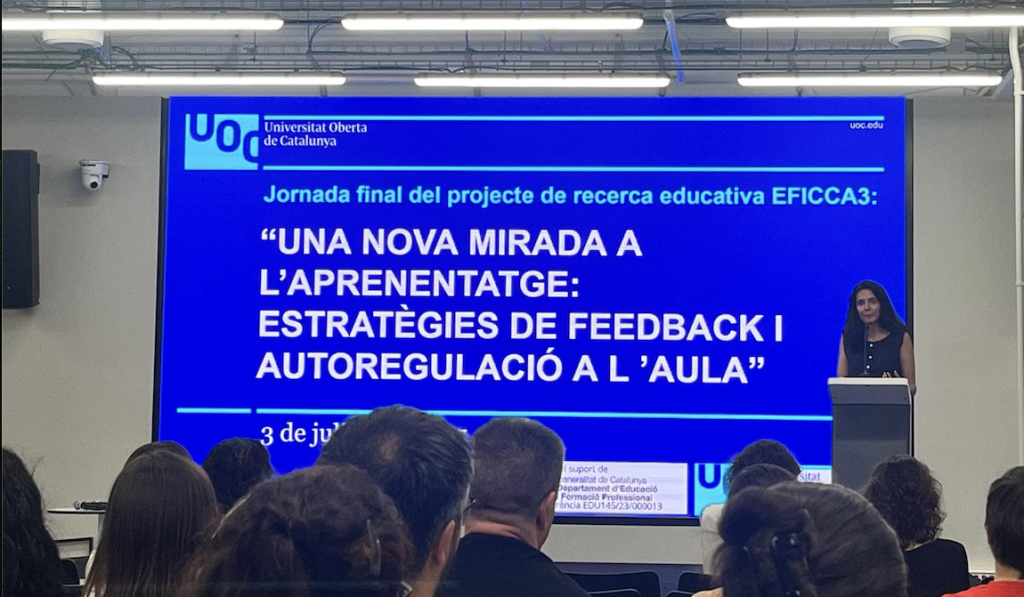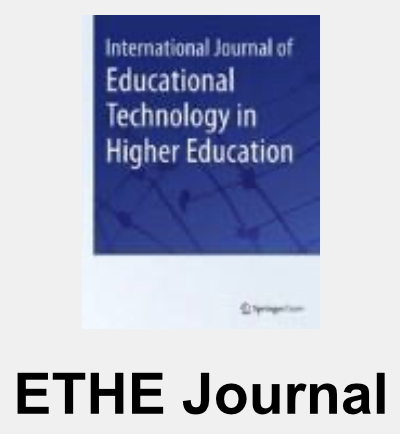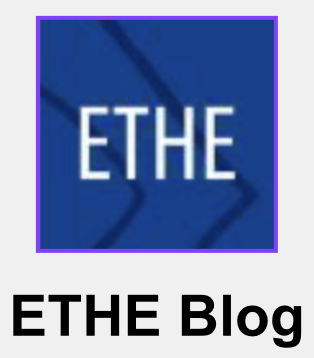Final Conference of the EFICCA3 Project: Strategies for Learning to Learn
On Thursday, July 3rd, we held a closing session for the EFICCA3 project “Internal feedback strategies for the deployment of new competency-based curricula: towards self-regulation of student learning” at the Universitat Oberta de Catalunya. Under the title “A New Approach to Learning: Feedback and Self-Regulation Strategies in the Classroom,” attendees learned about the experiences of ten Catalan high schools in initiating secondary school student learning processes through self-regulation and feedback.
The day began with an institutional welcome from the Vice-Rector for Teaching and Learning, Dr. Teresa Guasch, who emphasized the competency of learning how to learn and the need for developing student self-regulation through appropriate feedback processes.
Next, Dr. Nati Cabrera (Edul@b Research Group, Universitat Oberta de Catalunya) and Dr. Maite Fernández-Ferrer (GREDU Research Group, Universitat Oberta de Catalunya) presented the EFFICA3 project in detail. The project’s main objective is to study and understand internal feedback practices that promote student self-regulation in order to educate students. The aim is to delve into how this feedback can be effectively integrated by students to improve their learning process.
To this end, four specific objectives are proposed: to identify the key characteristics of this type of feedback, to create and validate an instrument to detect success stories, to identify best practices in local and international contexts, and to analyze the processes that guarantee the success of internal feedback, with the aim of offering an applicable model for teaching teams.
The project’s research team is made up of professionals and researchers from various Catalan universities: Maite Fernández-Ferrer, project coordinator, Nati Cabrera, Eduard Masdeu Yélamos (Universitat Oberta de Catalunya), Elena Cano, Ludmila Martins Gironelli (Universitat de Barcelona) and Georgeta Ion (Universitat Autónoma de Barcelona).
EFICCA3 Official Website, here.
During the day, we learned about the experiences of participating schools through various formats: roundtable discussions, presentations, and a poster session. The following schools shared their experiences: Escola Garbí Pere Vergés, Institut Vilafranca II, Institut Peralada, Institut Neus Català, IE Josep Maria Xandri, Institut Vilamajor, IE Santa Anna, IE Les Vinyes, IE Les Feixes i l’Escola Virolai.
Finally, Dr. Maite Fernández Ferrer concluded the session by presenting twelve recommendations to help students become more independent and reflective in their learning and, at the same time, how we can make feedback a useful and key tool in this process:
- Define objectives and clear, shared criteria. For example: teaching contracts, follow-up agendas, etc.
- Allow time to plan and review assignments.
- Plan real spaces for reflection. For example: presentations, debates, etc.
- Make the learning process visible: use monitoring tools adapted to the educational context.
- Support through tutorial action and the application of different strategies.
- Promote active and sustained feedback. For example: through assessment, peer assessment, and combined feedback.
- Connect feedback with learning improvement, that is, allow students to improve their assignments.
- Trust students to whom they can transfer responsibility.
- Personalize and contextualize assessment; in other words, adjust it to the educational needs and diversity of the school.
- Build a culture of observation and improvement among teachers.
- Involve families in the learning process. It is important to emphasize that learning is much more than just a grade.
- Cultivate a culture of learning how to learn and celebrate progress and experiences during learning.

